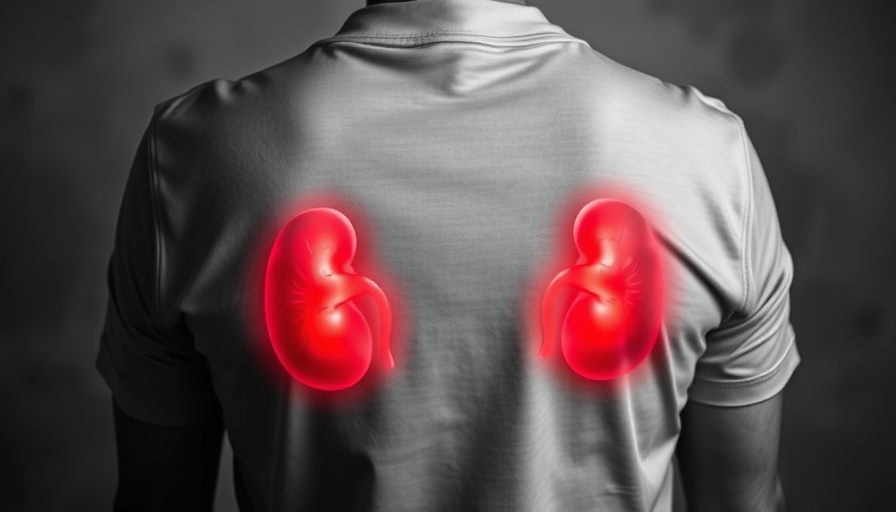
The Hopeful Breakthrough: Pridopidine in Huntington’s Disease Treatment
A recent study unveiled at the American Academy of Neurology annual meeting has brought some optimism for those affected by Huntington's disease (HD), a rare and fatal neurodegenerative condition. Researchers highlighted the investigational drug pridopidine, which has shown potential benefits in managing symptoms and possibly slowing disease decline in early-stage HD patients. From revealing disturbances in cognition and movement to potentially enhancing quality of life, this drug is raising crucial conversations in the world of neurological health.
What is Huntington’s Disease?
Huntington's disease is caused by a genetic mutation in the HTT gene, leading to a 50% chance of inheritance if one parent is affected. Patients often experience uncontrolled movements, cognitive decline, and a progressive loss of functional abilities. At present, the available treatments only focus on palliative care, treating symptoms without addressing the disease's progression.
Understanding Pridopidine's Mechanism
Pridopidine targets the sigma-1 receptor (S1R), a protein prevalent in the brain and spinal cord. This receptor plays a crucial role in regulating neurological functions that often deteriorate during neurodegenerative diseases. The drug's mechanism promotes neuroprotection, sparking curiosity among researchers regarding its long-term effects.
A Closer Look at the PROOF-HD Trial
The phase 3 PROOF-HD trial highlighted promising findings. It involved 499 participants with mild to moderate HD who were either taking low doses of antidopaminergic medications (ADMs) or none at all. This distinction is significant, as previous studies indicated that ADMs could worse function and overall cognitive performance in HD patients. While the trial did not meet its primary endpoints, a focused analysis on non-ADM users emerged.
Encouraging Results For Non-ADM Users
In a subgroup analysis, participants not taking ADMs demonstrated a meaningful response to pridopidine, particularly regarding fine motor skills and cognitive functions. The improvement recorded in these patients signals a critical transition toward personalized treatment approaches, emphasizing the need to consider individual responses to medication.
The Importance of Continuous Research
This early research underscores the necessity for ongoing studies and trials in the HD space. As the medical community uncovers new insights, patients, families, and healthcare providers are reminded of the importance of hope and resilience in facing chronic conditions like Huntington’s disease. Each finding is a building block toward comprehensive, effective treatment.
What This Means For Patients and Families
For the families impacted by HD, the revelation surrounding pridopidine might signal a lighter future. With no currently available treatment affecting disease progression, any positive outcome brings renewed hope. This can serve as a source of motivation, not only for the patients but also for caregivers who often shoulder the emotional strain of watching their loved ones decline.
Empowering Decisions with New Knowledge
Understanding the implications of recent studies on HD treatments allows patients and families to engage actively with their healthcare providers. Equipped with new information, they can advocate for consideration of investigational therapies like pridopidine, even before full approval, making it easier to navigate the complex healthcare landscape surrounding rare diseases.
Call to Action: Stay Informed
As more research unfolds, it is crucial for those affected by Huntington's disease to remain informed about emerging therapies. Engage with healthcare professionals, participate in support groups, and stay connected to organizations dedicated to HD research and the patient community. Awareness and dialogue are vital as we pave the way for more effective treatments.
With each new development, hope grows stronger in the realm of Huntington’s disease. By continuing to educate ourselves and advocating for innovative treatments, we not only empower ourselves as patients and families but also contribute to a brighter future for all facing this challenging disease.
 Add Row
Add Row  Add
Add 



 Add Row
Add Row  Add
Add 
Write A Comment